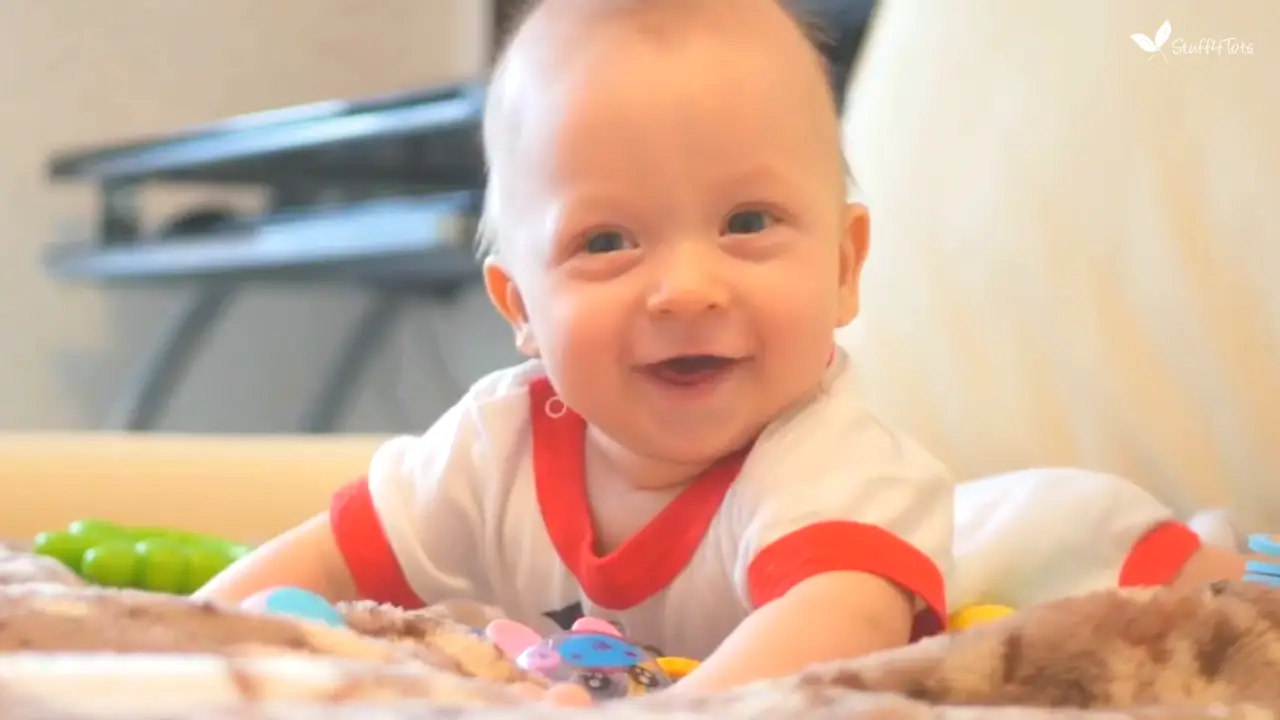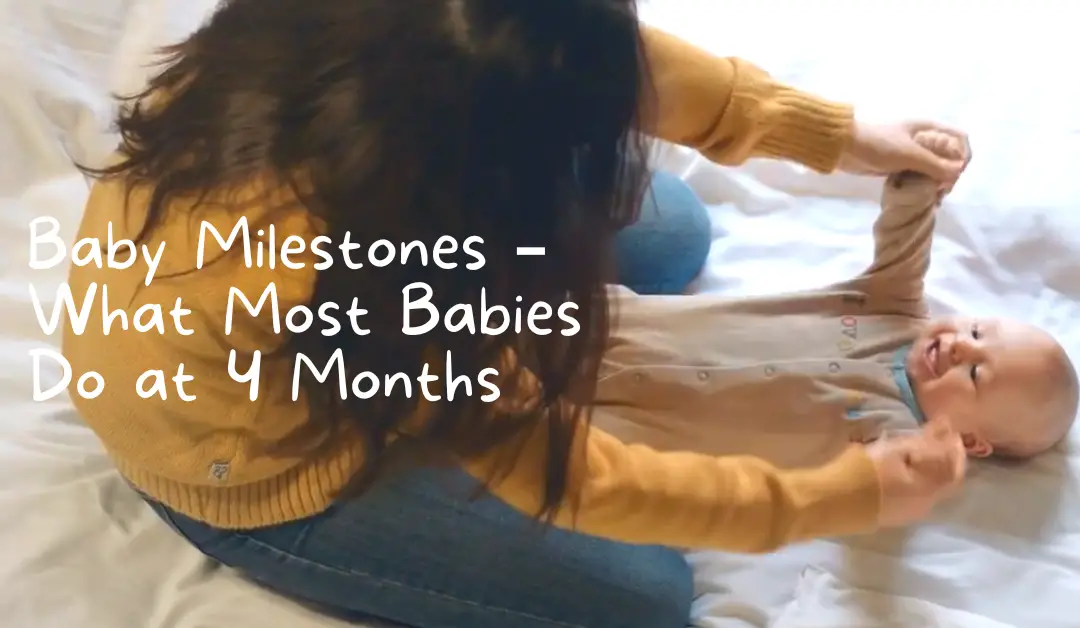Table of Contents
Developmental Milestones
In this article, we’ll be discussing milestones which your child reaches during the fourth month. These baby milestones are as defined by Centers for Disease Control and Prevention (CDC).
There are things most children can do by a certain age.
It’s helpful to understand the important clues in your child’s development, like how your little one moves, acts, speaks, learns, plays, and interacts.
Join us as we explore these first-time actions which are called developmental milestones.
What Can Most Babies Do By Month 4?
First up, let’s look at emotional and social milestones. Your baby:
- Smiles to get your attention
- Chuckles when you try to make him laugh
- Looks at you and then makes sounds and moves to get your attention
Second, communication and language milestones. Your baby:
- Makes sounds like “oooh” and “aahh”
- Replies to you when you talk to him by making sounds
- Turns his head towards the sound of your voice
Third, cognitive milestones. These include thinking, learning, and problem-solving. Your baby:
- Opens his mouth when he sees a breast or a bottle (that’s if he’s hungry)
- Observes his hands with interest
And the fourth, movement and physical development milestones. Your baby:
- Can hold his head steady without support when you are holding him
- Holds a toy when you place it in his hand
- Uses his arm to swing at toys
- Brings his hands to his mouth
- Pushes up onto his elbows or forearms when on his tummy
You know your baby best.
If you might feel that your baby is not meeting one or more milestones, has lost skills he or she once had, or if your child might have special healthcare needs, please see your pediatrician as early as possible.
During the visit to your pediatrician, it’s important to discuss these things:
- What do you and your baby do together?
- What does your baby like to do?
- Is there anything that your baby does or doesn’t do that is of concern?
Please don’t be alarmed if your baby hasn’t quite hit some or all of these milestones by the end of month 4. Human beings are a varied bunch, and we all develop at different rates.
These milestones are “averages”, and some babies will cross them earlier or later than the herd.
There’s no need for worry about milestones in month 4 but there’s no harm in discussing things with your pediatrician if there is anything of concern.
You Play a Great Role in Your Baby’s Learning and Brain Development
You are your baby’s first and best teacher, and it’s you who can help him or her the most with this learning and brain development phase.
Here are some simple activities to try with your baby:
Show your baby a positive response.
Smile, talk, and act excited towards him when he makes sounds. This teaches him to take turns “talking” back and forth in conversation.
Provide a safe environment for your baby where he can reach for toys, play with toys and explore what’s around him.
For example, place him on a blanket with safe toys.
Allow your baby to place safe things in his mouth so that he can explore them.
This is a great way for babies to learn. For example, let him see, hear, and touch things that aren’t small enough to choke on, sharp, or hot.
Read, talk, and sing to your baby.
This helps him to learn to speak and understand words later.
Limit screen time on the TV, phone, tablet, etc. to simply video calling with loved ones.
Screen time isn’t recommended for children that are younger than 2 years old. Babies learn more by talking, playing, and interacting with others.
Only feed your baby breast milk or formula at this stage.
Babies aren’t ready for other types of food, water, or other drinks for their first 6 months.
Give your baby toys which are safe to play with and are easy to hold.
Examples are rattles or cloth books with colorful pictures that are appropriate for your baby’s age.
Allow your baby to interact with people and objects throughout the day.
Try not to keep your baby in strollers, swings, or bouncy seats for too long.
Set steady routines for sleeping and feeding.
Your baby will begin to learn what to expect when he gets used to these routines.

Tips and Activities for Baby’s 4th Month
Lay your little one on his back and show him a bright-colored toy.
Move the toy slowly from left to right, and then up and down to see if he watches how the toy moves.
Talk and sing to your baby while helping him move his body or “exercise” for a couple of minutes.
Please remember to bend and move his arms and legs up and down gently.
Thoughts
Keep in mind that it’s not exactly when your baby gets to sit up by himself or utters his first words. What’s more important is that they’re progressing with their development.
Stay tuned for our next article where we’re going to talk about baby milestones for 6-month-olds! We’ll see you then!
How’s your 4-month-old doing?
We’d love to hear from you! Let us know in the comments below.
Thanks for stopping by!
Related articles you might also find useful:





